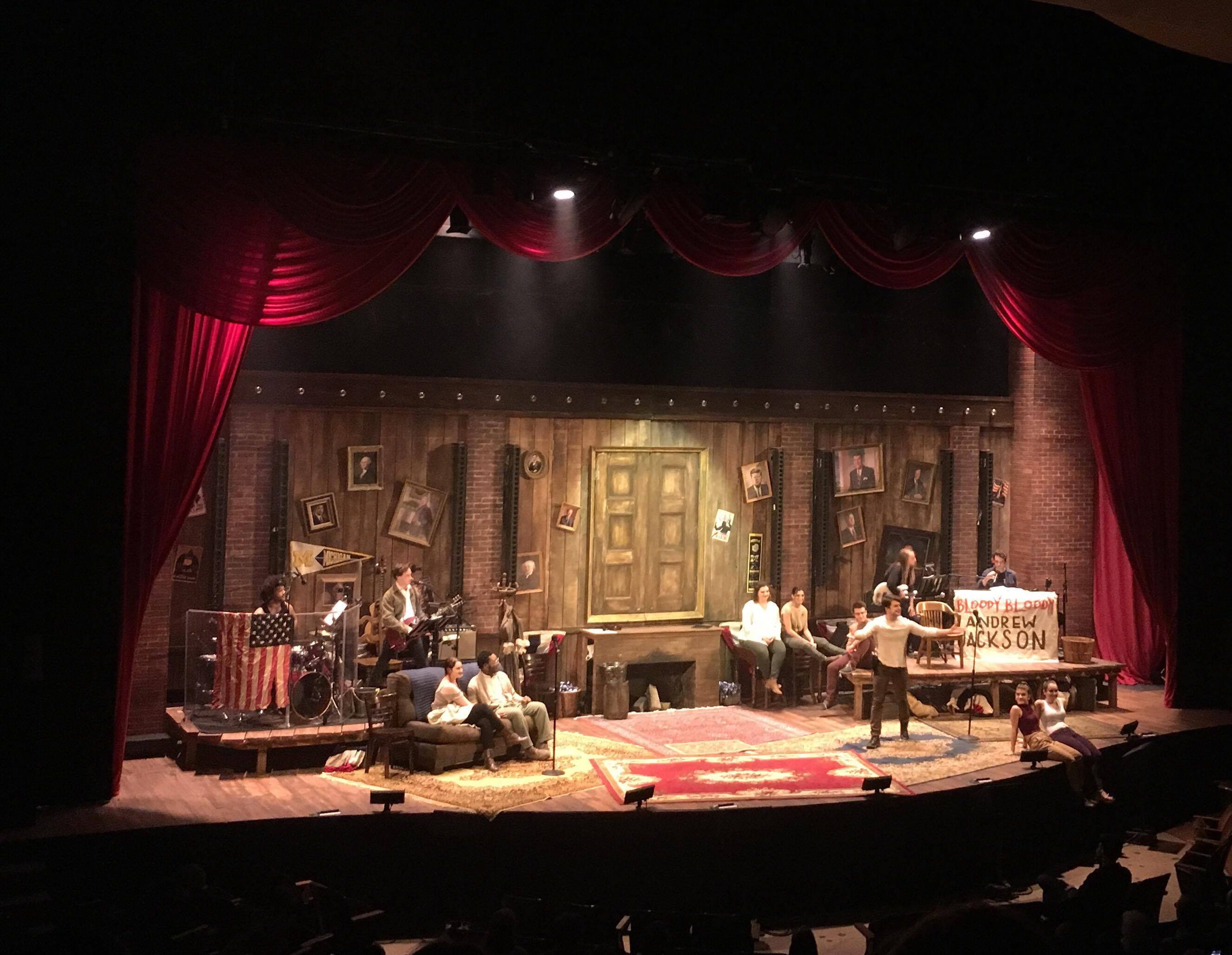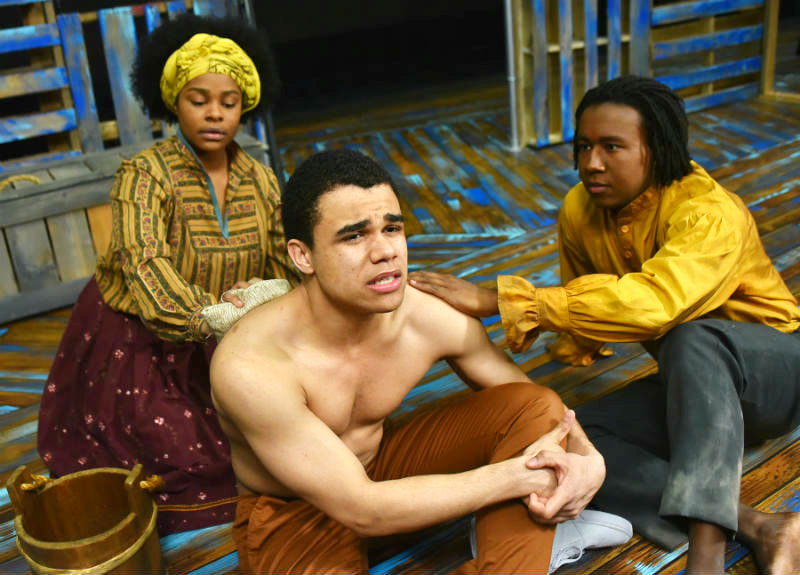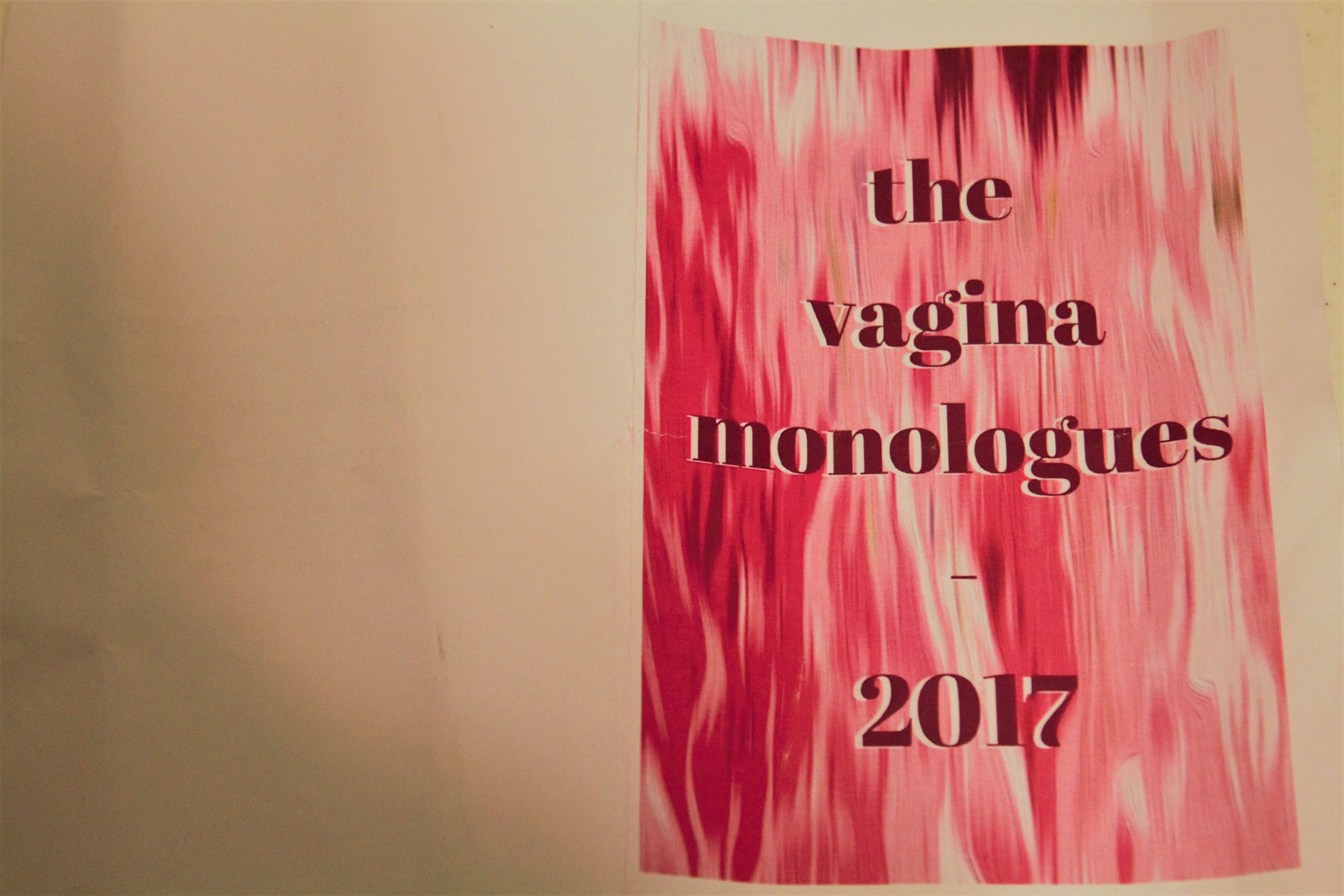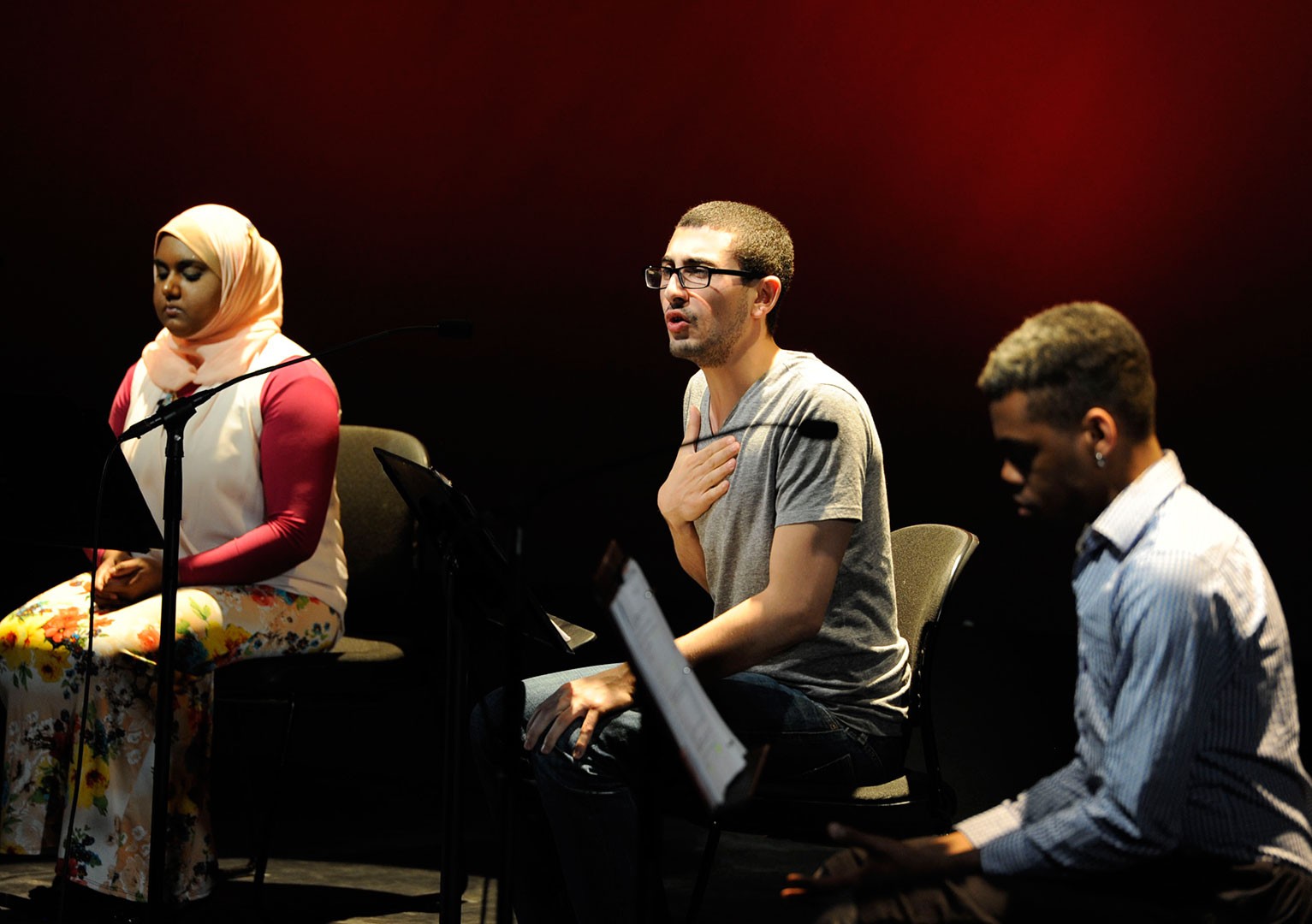I’m glad I got a warning from my professor before I actually watched the play. “Explicit scenes,” he wrote in a mild-mannered email, “some nudity.”
Some, indeed. The image of Teacher Caroline, in skirt and bra, using a school meter ruler to lift Teacher Stuart’s penis in a sexually charged after-school fantasy is still burnished in my scantily prepared mind.
But don’t get me wrong. While sex plays a big part of the play, it’s not a publicity tool there to generate WTF moments. It’s a crucial sub-theme explored within the context of the modern racism the creators are trying to break down and show audiences.

Their agents? Middle school teachers Stuart, a “progressive” white teacher and his black colleague/romantic partner Caroline, who are on a quest to teach impatient middle schoolers (i.e the audience) about the silver lining of slavery: the Underground Railroad. Interestingly, while this classroom narrative initiates the play, it’s not the main feature nor the closer. Instead it served more as strategically-placed intermissions that relaxed some of the visual, emotional, and mental overload delivered by the three other interweaving narratives (so that our brains don’t just explode in one sitting).
The first narrative is one where we see Stuart and Caroline outside of the classroom on the street, talking on the way to class. Their conversations turn coquettish at times but uncomfortable in most. Stuart often stumbles around making earnest comments that often sound racist (in discussing the possibility of them becoming a couple, he blurts out that he needs to check with “her people”). Caroline takes them without offense and responds with her own racist jokes (at one point she does a Mean Girl imitation). These scenes point at the obviousness of race in today’s often-termed “post-racial” society.

The second narrative is a role play that involves the characters Stuart and Caroline act out for their “students” in class: an abolitionist and the slave he tries to protect. It’s a simplified children’s story that exaggerates the “good parts” of slavery, satirically portrayed fairytale style, with a hero and a damsel in distress. Fittingly, the play cuts this narrative before it comes to a conclusion almost all the time, as if it denies its overstated significance in the conversation about racism.
The third narrative is set in the bedroom (and the couple’s shared fantasyland). It’s here that the play explores a lot of its discussion-worthy themes in racism. One of the most memorable scenes in the play happened in this setting. What was initially a “Meet a Slave” lecture (Stuart interviewing Annabelle/Caroline the slave for the students) turns increasingly sexual FAST after Annabelle/Caroline starts complimenting Stuart’s body. But this is no ordinary sex scene.
A/C (in an elevated curtain-like dress): “What do you like about me, Teacher Stuart?”
S: “Your voice.”
A/C: “What do you like about it?”
S: “It feels like it-”
A/C:”Comes from the Earth? Rolls…over my body?” (starts unbuttoning her blouse while motioning for Stuart to come over. She starts to hum a spiritual, haunting tune.)
With Caroline’s torso fully naked, Stuart comes over, suckles her breast, then crawls under her ballooned dress. Yep, its definitely R-rated.
But it takes an interesting look at race relations. A slave, bound and reduced to her manual labor, is at the same time glorified (she is much bigger than Stuart on top of invisible stand), and fetishized for her association to the Earth. She becomes a form of enslaved Mother Earth that is treated as an object but at the same time, enshrouded by a primeval form of energy that attracts and fascinates white men.
These interesting investigations on race were sprinkled throughout the play. During my class discussion after the play, we touched on things like Stuart’s “progressive racism” and Caroline’s “revenge” fantasy that explore racial relations from two sides of the divide. Overall, Underground Railroad Game is definitely one of those plays that you will remember for a very long time. Now, I’m gonna get back to figuring out how they did it all.











